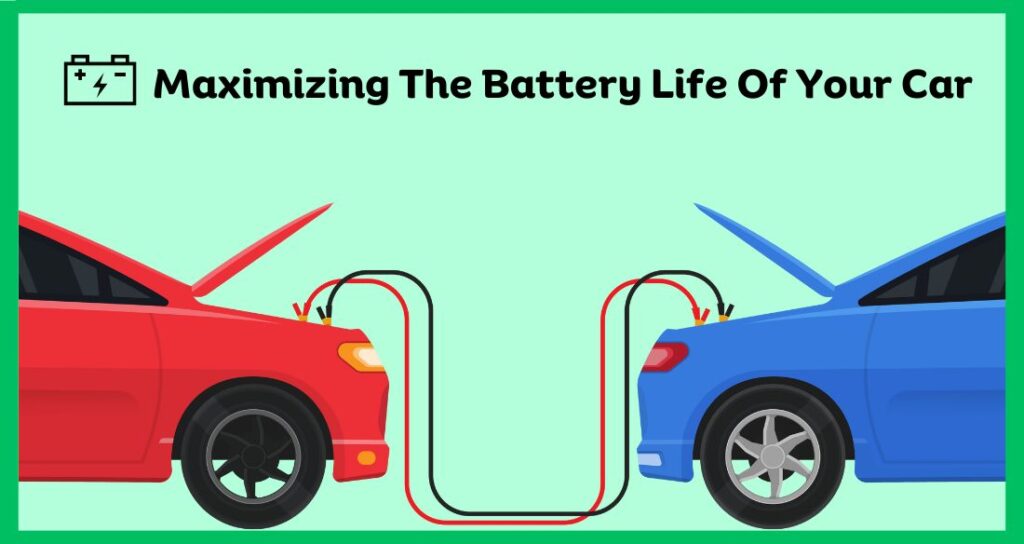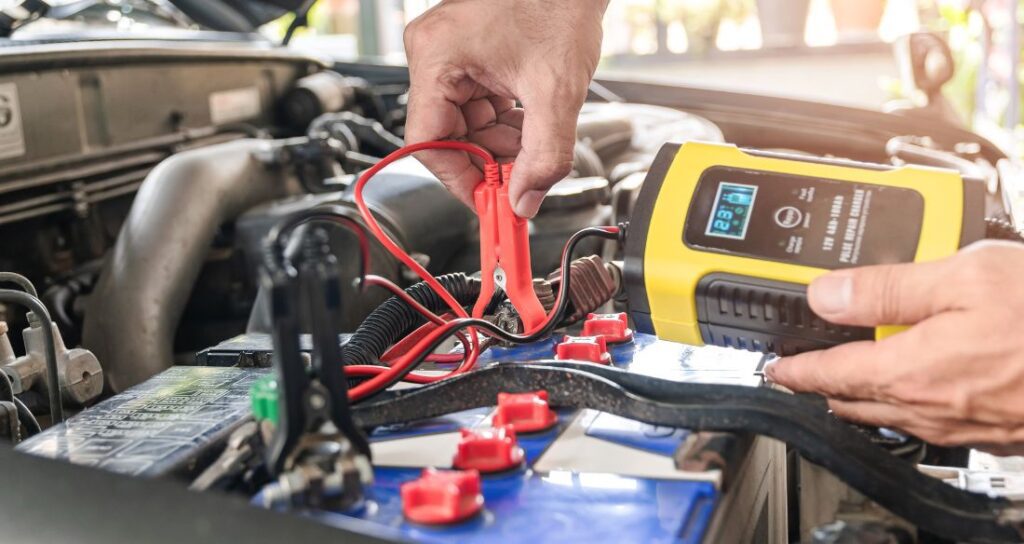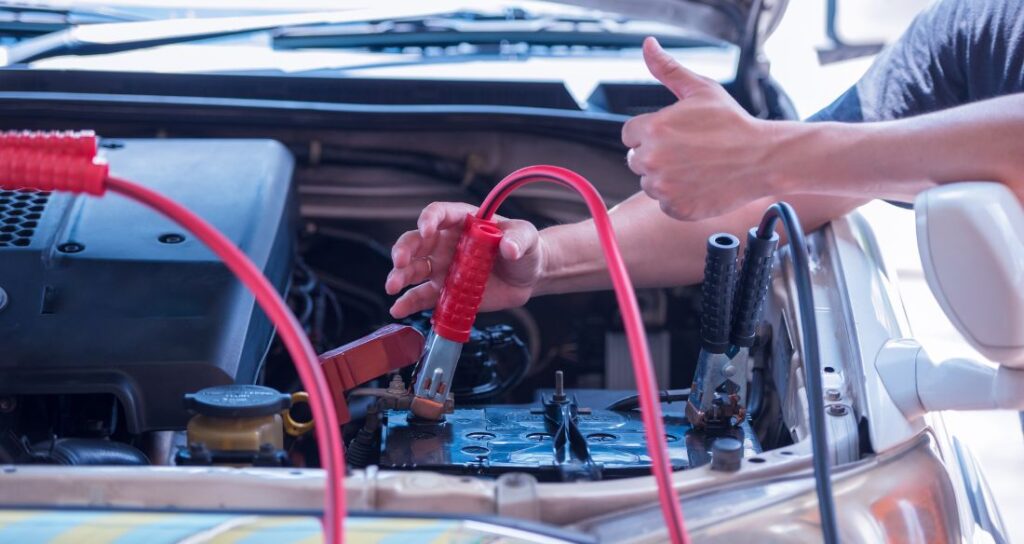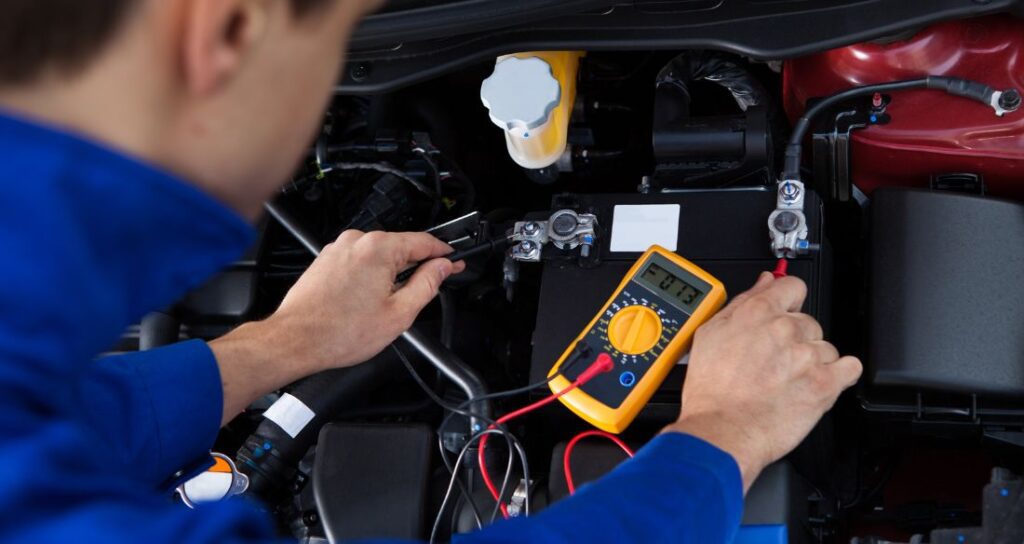

Your car’s battery is a crucial component powering various electrical components and starting the engine. A healthy and long-lasting battery life is essential for the reliable functioning of your vehicle. Hence, proper maintenance and care can significantly maximize its lifespan and minimize unexpected breakdowns. In this guide, we’ll discuss simple and effective ways to increase your car’s battery life.
Choose the Right Battery

When it comes to battery selection, it’s essential to choose a high-quality battery that is specifically designed for your car’s make and model. For this, you may consult your vehicle’s manual or seek advice from a trusted mechanic. Investing in a reliable battery from a reputable manufacturer will provide better performance and longevity.
Regular Battery Maintenance

Routine maintenance is the key to maximizing your car’s battery life. Wondering how to do that?
- Periodically inspect the battery for any signs of corrosion, leaks, or damage. Clean the terminals and ensure they are tightly secured.
- Keep the battery and its surroundings clean from dirt, grime, and debris, as these can cause electrical resistance and drain the battery. If present, clean the terminals using a mixture of baking soda and water and a wire brush.
- Additionally, regularly check the battery’s fluid level and top it up if necessary, but not exceeding the maximum level indicated. If the fluid level is low, add distilled water as recommended by the battery manufacturer.
- Test the battery’s voltage and charge capacity using a multimeter or have it tested by a professional to identify any potential issues. Most car batteries have a lifespan of around three to five years, so consider replacing your battery within time to maintain optimal performance.
Charging System Maintenance

To increase your car’s battery life regularly inspect the charging system components- the alternator, voltage regulator, and belts.
- The alternator charges the battery while the engine is running. Ensure it’s in good condition, and the drive belt is properly tensioned.
- Check the battery cables for signs of wear or corrosion. Loose or corroded connections can impede proper charging and result in poor electrical performance. Thus, clean or replace them if necessary to maintain good electrical connections.
- The voltage regulator regulates the charging rate of the battery. Hence, ensure it functions correctly to prevent overcharging, which can damage the battery.
- Take your car for regular drives, especially longer trips, to allow the battery to charge fully. Short trips do not give the battery enough time to reach its full charge.
Energy-Saving Driving Habits

These energy-conserving driving practices can immensely contribute to increasing your car’s battery life.
- Firstly, minimize the electrical load. Avoid using electrical accessories like headlights, audio systems, and air conditioning, when the engine is off to reduce strain on the battery. Additionally, ensure that all lights and accessories are turned off before exiting the vehicle to prevent unnecessary battery drain.
- Secondly, avoid excessive cranking when starting your car. If the engine doesn’t start within a few seconds, take a short break before attempting again to prevent battery drain.
- Thirdly, reflect on parking considerations. When parking your car for an extended period, turn off all unnecessary electrical components and remove any aftermarket devices. Else, these may drain the battery.
- Lastly, extreme heat or cold significantly impacts the battery’s performance. High heat accelerates chemical reactions within the battery and extremely cold temperatures reduce the battery’s ability to generate sufficient power. Therefore, whenever feasible, park your car in a shaded or sheltered area. Additionally, use a battery insulation blanket or heater to maintain the battery’s performance in sub-zero temperatures.
Battery Storage Tips

Implementing a few practical tips and techniques for battery storage is vital to increase your car’s battery life. Take note.
- If you plan to hold your car for an extended period, remove the battery, clean it, and store it in a cool, dry place. So, keeping it away from direct sunlight and freezing temperatures will retain its life.
- If you have a garage or access to a power outlet, consider using a battery maintainer or trickle charger. These devices can help keep your battery at optimal levels during long periods of inactivity.
- Use your car regularly. If your car isn’t driven frequently, take it for multiple short drives or use a battery charger to keep the battery charged. Hence, this will prevent it from going completely flat.
Professional Assistance

What to do when you experience persistent battery issues or notice electrical malfunctions? If that case, seek professional assistance from a qualified mechanic or automotive technician. They can diagnose the problem accurately and recommend appropriate solutions promptly to ensure the longevity and optimal performance of your car’s battery.
Final Words
By implementing the above-mentioned practical tips, you can significantly increase your car’s battery life and reduce the risk of being stranded with a dead battery. Thus, undertaking these proactive measures will save you time, money, and potential inconveniences down the road.
Remember, a healthy battery leads to a more trouble-free and enjoyable driving experience, allowing you to hit the road with confidence. Nonetheless, note that each vehicle may have specific requirements, so consult your car’s owner manual for manufacturer recommendations.
FAQ’s
How can I extend the battery life of my car?
Regular maintenance, proper charging system care, energy-saving driving habits, appropriate storage measures, and seeking professional help, when needed, will all contribute to a longer-lasting battery.
How long does a car battery last?
Most batteries have a lifespan of around three to five years depending on usage, driving habits, and climatic conditions.
How to know if my car’s battery is waning?
Slow Engine cranking is a sign of a dying battery. If you hear it cranking slowly, bring your car home or seek professional assistance.
